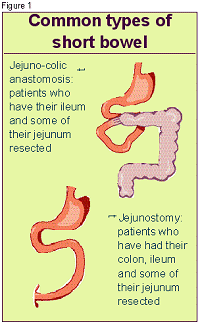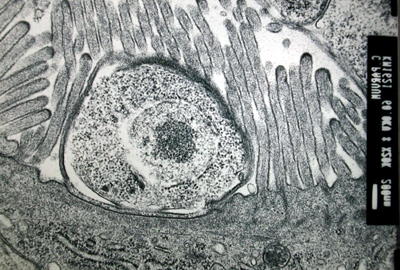![]()
The most important drive to develop a small intestine construct is to help patients with short bowel syndrome (SBS).
Short bowel syndrome refers to the mal absorption of food nutrients due to disease or surgical removal of parts of the small intestine. SBS is generally defined as having less than 150cm of small intestine remaining. Common causes of short bowel syndrome include Crohn's disease and necrotising enterocolitis.
The symptoms of short bowel syndrome can include:
- Abdominal pain
- Diarrhea
- Fluid retention
- Unintended weight loss

A person with short bowel syndrome is likely to be deficient in a range of important nutrients such as calcium, folate, iron, magnesium, vitamin B12 and zinc. Some of the disorders caused by malnutrition include Anaemia, Dehydration, Osteoporosis, and Impaired growth and development in children.
The patients with SBS are dependant on Intravenous Nutrition (IVN) in order to survive. It has improved the patients survival but it is associated with the serious complications including cholestasis, fibrotic liver disease, and venous thrombosis.
Small intestinal transplantation is a promising method of treatment with the survival rate of 53% for one year and 31% for three years. However, the low number of organs available makes this treatment option not very ideal.
|

![]()
![]()

